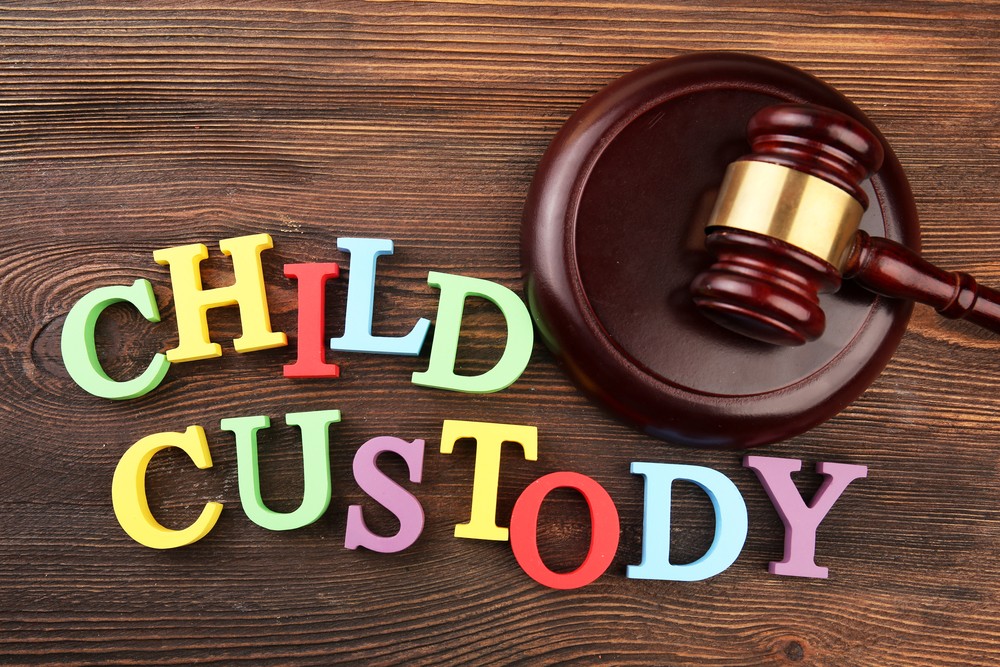Questions To Ask A Child Custody Lawyer
December 20, 2021

Child custody is probably the most disputed element of any divorce proceedings because it determines how parents will raise their child and can determine a child’s well-being for the rest of their life. Here at Brighter Day℠ Law, we take child custody and visitation cases seriously. We understand the emotional stress a family goes through during this tough time, so we prioritize the child’s emotional health in every custody battle. Our team of dedicated Colorado family lawyers provides innovative solutions that can build something new and beneficial for your current family situation. Let’s take a look at some good questions to ask a child custody lawyer.
Contact our Colorado custody attorneys today–we have offices in Colorado Springs, (Colorado) El Paso County.
Table of Contents
- Child Custody–How Do Judges Decide on Parenting Time?
- At What Age Can a Child Choose Custody in Colorado Springs?
- What is Joint Custody? What is Sole Custody?
- Can I Change a Child Custody Agreement?
- If both Parents Share Custody does Anyone Pay Child Support?
- Can a Parent Refuse to Allow Visitation if Child Support isn’t Paid?
- How has COVID-19 Affected Child Custody in Colorado?
- Contact Our Colorado Springs Child Custody Attorneys Today!
Child Custody–How Do Judges Decide on Parenting Time?
The focus of every child custody case is for the court to establish what’s in the child’s best interests when deciding custody and visitation arrangements. Colorado law encourages frequent and continued contact between parents and minor children. Mostly, courts begin their evaluation by presuming that joint custody is the best option, but only if it’s in the best interests of the child.
If you’re going through a divorce or you’ve separated from your ex, if you have young children, you must consider custody arrangements. Sometimes parents can work together amicably to determine the best custody arrangement for their children. However, in Colorado, if you and your spouse can’t agree on a parenting schedule, a judge will decide for you.
When deciding parenting time, family law courts must consider and explain the findings of each of the following factors:
- Each parent’s wishes as to parenting time;
- The child’s wishes if he or she is mature enough to express reasoned and independent opinions regarding parenting time;
- The interaction and relationship between the child with their parents, siblings, and any other person who may significantly affect the best interests of the child;
- How the child adjusts to their home, school, and community;
- The mental and physical health of either parent;
- The child’s mental and physical state;
- Each parent’s past involvement with the child;
- The ability of each party to encourage a good relationship between the child and the other party;
- Each parent’s history of domestic violence or child abuse, and
- The ability of each parent to put the child’s needs ahead of their own needs.
Apart from the child’s best interests, when deciding parenting time, it’s crucial to note that Colorado law prohibits courts from considering:
- The conduct of either party that doesn’t affect the minor children, or
- A parent’s sex. Both parents are on equal footing, no preference is given to either the mother or the father.
At What Age Can a Child Choose Custody in Colorado Springs?
Every child custody case is unique. In Colorado, like most states, there are no hard rules that govern what age a child is old enough to make custody decisions on their own. Instead, judges take each case as it comes.
Most courts agree that 14-year-olds are mature enough to have some say in custody battles. By ages 16 and 17 children may have influence over which parent they live with. Some courts value the wishes of children this age significantly. Most judges don’t consider the wishes of children younger than 14 because children this age are easily influenced by other parties involved.
Courts never base custody decisions solely on the wishes of the child, regardless of age. But a judge may consider an older child’s wishes when making the final determination. A child’s wishes may come true if the court determines that it’s what is in the best interests of the child. Otherwise, the child will have to live with the other parent, even though they don’t want to. Courts always rule in favor of the child’s best interests, no matter what the child wants or doesn’t want. However, older children may sway the court’s decision.
What is Joint Custody? What is Sole Custody?
Colorado no longer uses the terms joint custody(shared custody) and sole custody. Instead, Colorado courts use the term parental responsibility, which can either be joint or primary. Allocation of Parental Responsibilities (APR) is the process that determines parenting rights and responsibilities during child custody and visitation rights cases.
Parental responsibilities are divided into two categories: parenting time (physical custody) and legal custody (decision-making). In Colorado, physical custody determines parenting time, also known as custody. Parenting time entails where the child will live, visitation schedules, vacation and holiday schedules, and pick-up and drop-off arrangements. If you share equal overnights with your minor child, then you have joint physical custody. However, if you have less than 90 overnight visitations with your child, then the other parent has primary physical custody of the child.
Legal custody encompasses the ability to make decisions about a child’s life. These decisions include important aspects, such as educational choices, religion, medical treatment, extracurricular activities, and much more. Primary legal custody allows the named parent to make major decisions regarding their child without consulting the other parent. Joint legal custody occurs when both parents have to make major decisions about their child together.

Can I Change a Child Custody Agreement?
Parents can negotiate parts of their custody agreement every 2 to 3 years. If both parties agree on the changes, they can change their court order using an agreement. But if they can’t agree on the changes, one parent must file a petition with the court asking for a modification of their current custody and visitation arrangement.
Thus, if you want to change your child custody agreement, you and your ex-spouse will need to meet with a mediator or a child custody lawyer to discuss why you want to change your custody order before you go for a court hearing.
However, to request a change of custody agreement, you must show that there has been a “substantial change in circumstances” since the final order was made. This means you must prove there has been a significant change that warrants a new custody and visitation arrangement for the best interest of your children.
If both Parents Share Custody does Anyone Pay Child Support?
Yes, shared parenting arrangements that include joint custody don’t negate child support obligations between parents. That’s because courts treat custody decisions and child support as two different issues. So, a parent who has joint custody may still be ordered to pay child support.
Also, courts determine who pays child support based on gross monthly income and other expenses. So, while who has more time with the child is a factor in custody battles, it’s not determinative of the child support obligations.
Can a Parent Refuse to Allow Visitation if Child Support isn’t Paid?
Child support obligations and visitation are two separate issues, so a parent who hasn’t paid the required child support can’t be denied visitation with their child. While visitation may be modified with the consent of both parents or by a family law judge, a court can’t sever visits between the child and the delinquent parent completely.
Courts encourage the development of meaningful relationships between both parents and the child via continued contact. Thus, if a parent who is owed child support payments prevents the other parent from visiting their child, the parent who owes child support could ask the court to change child support in their favor.
Although child visitation can’t be eliminated, there are other ways to hold the delinquent parent accountable, including withholding their wages through a wage assignment, denying insurance or passport renewal, or denying issuance or renewal of a driver’s license or professional license.
How has COVID-19 Affected Child Custody in Colorado?
COVID-19 has had tremendous repercussions on Colorado courts and family law cases. The pandemic has forced parents to attend hearings and visitation virtually. Also, parents are now struggling to co-parent effectively with former spouses who have different views on social distancing, mask-wearing, and parenting time during the pandemic. Although these are unique times, laws are evolving, parents still have to adhere to court orders.
Here at Brighter Day℠ Law, we’re closely tracking the pandemic’s impact on child custody cases and other family law aspects.
Contact Our Colorado Springs Child Custody Attorneys Today!
If you’re looking for experienced child custody attorneys in Colorado Springs, and want to explore a variety of legal options, contact Brighter Day℠ Law. We have been helping clients across Colorado win their custody battles, and we can help you, too. We know Colorado family laws, inside and out, from divorce to legal separation, including parenting and custody matters. Contact us today at 719-733-9129, or chat with us online for a free consultation.
